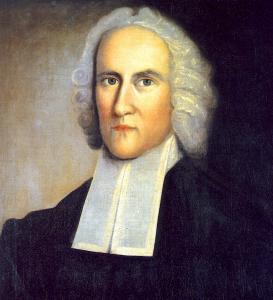 Westminster Seminary historical theologian Carl Trueman just posted a Reformation 21 piece on political messiahism called “Messiahs Pointing to the Door” that includes the following salvo on Christian culture:
Westminster Seminary historical theologian Carl Trueman just posted a Reformation 21 piece on political messiahism called “Messiahs Pointing to the Door” that includes the following salvo on Christian culture:
“[A]s in politics, so in religion. The American political process, as I argued above, is simply the most dramatic example of the `great man theory of history’ which pervades American society. I had often wondered why certain British figures – Jim Packer, N.T. Wright, Alister McGrath etc., were much bigger this side of the Atlantic than back home in their native country. Was it just the accent? Surely it couldn’t be the dentistry…..? Maybe the dress sense? No. It is all to do with the way America is a personality/celebrity oriented culture in a way that Britain, while she may well be catching up, has historically not been.
The American church reflects the culture: ministries built around individuals, around big shots, churches that focus on god-like guru figures, all of them pointing to one door. I have lost count of the conversations I have had with church people anxious to tell of who they heard at this conference, of which person they corresponded with, of how this opinion or that opinion would not sit well with this demi-god and is therefore of little value; and, of course, of how anyone who disagrees with, or criticizes, this chosen hero must, of necessity be morally depraved and wicked. People want the gods to do their thinking for them. All of the Pelagian, Manichean celebrity malarkey of the American political process is alive and well in the church as well. The question is: when it comes to churches and ministries built around messiahs who are supposed to point not to themselves but to the true door, who is going to have the guts to leave the temple?”
Trueman offers a needed perspective here, one that will perhaps pry many of us out of a lack of cultural self-awareness. It’s a commonplace in our day that “celebrity” Christians lead our movement, write the big books, speak at the big conferences, run the big churches. There is potential weakness here, for sure, weakness that we may not always see but need to consider.
Our culture can leave us susceptible to the vicissitudes of a personality-driven atmosphere, causing us to trust more in the speaker at the conference, perhaps, than in the Lord of the church. Trueman is right about the way some Christians lean too strongly on certain leaders, seemingly aligning themselves more with earthly leaders than the Lord of the church. The same is true of contempoary political leaders, not least among them our current President. In sum, his political analysis is generally on target, and he gives some needed cautions about a celebrity church culture.
I would wonder about a few matters, though. British Christian culture is perhaps not as immune to celebrity Christianity as one might initially think. One thinks of Charles Spurgeon and his influence in the nineteenth century, and D. Martyn Lloyd-Jones in the twentieth century to bring this home. Both men exerted an international influence, as did G. K. Chesterton. And does not the Archbishop of Canterbury, for example, wield considerable power and draw considerable attention?
America is of course more susceptible to celebrity culture, however, and its political structure surely makes this possible. Every four years, two people who have cultivated themselves for years attempt to win the political loyalty of the majority of the American populace. Our country is set up to reward people with large personalities, and, whether we want to admit it or not, the same is true in our Christian (and reformed) world.
In addition, there are some strengths to our unique setup. A leader like John Piper can affect a diverse mass of people, some of whom he could not in another system. This is merely one example of many that one could cite. Another that comes to mind is, um, Carl Trueman. His theological perspective and writing ability draws people like me to watch for his incisive columns. Celebrity Christian culture can cause me to put my faith in individuals, certainly, but it also can make me aware of figures like Trueman who I wouldn’t necessarily hear of in another kind of environment.
At the end of the day, I’m sure that I have a great deal of agreement with Trueman. I would love for American Christians to put way more trust in the church–and more than this, the Lord of the church–than in conferences, speakers, big-name organizations, and the like. More of us everyday Christians need to invest in the local work of God and give a little less devotion, perhaps, to big-name Christians.
We could all do a little self-examination on this point and consider whether we’ve bought into celebrity Christian culture and how it might be affecting our view of the church and its mission. But don’t take my word for it–take Carl Trueman’s.















